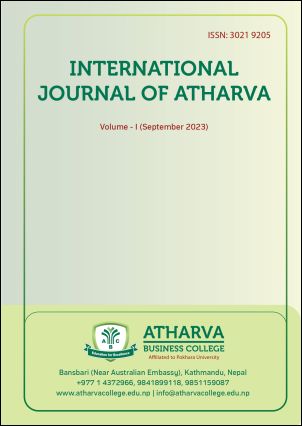Consumer Willingness to Pay for Pesticides-Free Fruits and Vegetables (A Case Study of Bhaktapur District)
DOI:
https://doi.org/10.3126/ija.v1i1.58846Keywords:
Contingent Valuation, Pesticide-free fruits and vegetables, premium price, willingness to payAbstract
Since it has been proven that pesticides free products are helpful to prevent several health hazards. The demand for organic products is increasing all over the world. Thus, this study was conducted with the objective of identifying the factors influencing the consumers' willingness to pay for pesticide-free products in Bhaktapur districts of Nepal. 123 data were collected from four municipalities of Bhaktapur district (Suryabinayak municipality, Madhyapur Thimi municipality, Bhaktapur municipality and Changu Narayan municipality). Logistic regression was applied for the analysis of data. The result of logistic regression reveals that gender, age awareness about the presence of residue in vegetables and awareness about the problem of health from pesticide-free products significantly influence the willingness to pay for pesticide-free fruits and vegetables. Therefore, it is recommended that accessible outlets, reasonable price, and awareness programs on pesticide-free products will encourage local farmers and benefits consumers.
Downloads
Downloads
Published
How to Cite
Issue
Section
License
Copyright (c) 2023 Deepak Ghimire, Kapil Khadka

This work is licensed under a Creative Commons Attribution-NonCommercial 4.0 International License.





